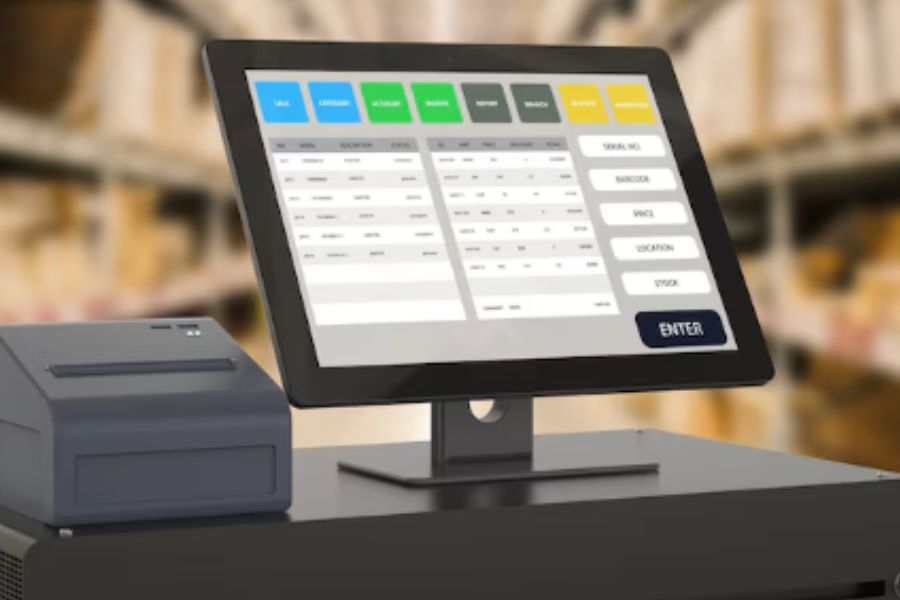Are you looking for some BigCommerce alternatives for your business? E-commerce platforms are widely used, with many seeking robust software solutions that provide product search and filtering, storefront design tools, and third-party store integration. When considering alternatives to BigCommerce, it is also important to consider customer service and available features. This blog will give 10 BigCommerce alternatives to supercharge your store. Now, let’s get started!
Why It’s Time to Look for BigCommerce Alternatives
When evaluating e-commerce platforms, it’s important to consider the specific needs and challenges your business faces.
BigCommerce is a popular platform, but there are several reasons you might look for alternatives:
- Lack of integration with essential solutions
If BigCommerce doesn’t seamlessly integrate with the tools and systems crucial to your business operations, such as CRM, ERP, or specialized marketing tools, it can hinder your efficiency and growth. Finding a platform that offers better integration capabilities can streamline your workflow.
- Challenging to navigate
A user-friendly interface is critical for managing your online store effectively. If BigCommerce’s platform is difficult to navigate, it can lead to inefficiencies, increased training costs, and a frustrating user experience for you and your team.
- Surpassed the capabilities of BigCommerce
As your business grows, you may find that BigCommerce no longer meets your needs in terms of features, scalability, or performance. In such cases, transitioning to a more robust platform can support your business’s evolving requirements and future growth.
- Struggling to manage both online and offline sales
Suppose BigCommerce is not effectively supporting your omnichannel strategy, including both online and offline sales. In that case, it may be time to look for a platform that offers better synchronization and management across all sales channels.
Considering these points, exploring alternatives to BigCommerce can help you find a platform that better aligns with your business needs, enhancing your overall efficiency, user experience, and growth potential.
10 Best BigCommerce Alternatives to Boost Your Online Store
Selecting the right platform is crucial for the success of your online store. BigCommerce is a popular choice, but it’s not the only one. There are several alternatives, each with its own set of features, benefits, and target audience.
Let’s explore the top 10 BigCommerce alternatives that can help you elevate your online store to new heights.
WooCommerce
WooCommerce is the leading WordPress eCommerce plugin, widely embraced for its versatility and power. Moreover, it is free. Laden with an array of features, it seamlessly blends into your self-hosted WordPress site.
Benefits:
- Highly customizable with numerous themes and plugins.
- Seamless integration with WordPress, leveraging its powerful CMS capabilities.
- Cost-effective, especially for small to medium-sized businesses.
Businesses that already use WordPress need a flexible, customizable e-commerce solution.
Shopify Plus
Shopify Plus is the enterprise version of Shopify, designed to handle high-volume merchants and fast-growing businesses.
Benefits:
- User-friendly with an easy setup process.
- Extensive app ecosystem and built-in features.
- Scalable with powerful performance and reliability.
Large businesses or those expecting rapid growth, need a robust and scalable platform with minimal technical overhead.
Salesforce Commerce for B2C
Salesforce Commerce Cloud, formerly known as Demandware, offers a comprehensive e-commerce solution with advanced AI and personalization capabilities.
Furthermore, Salesforce Commerce Cloud also offers the functionality, flexibility, and customization of an in-house application combined with the operational benefits of a cloud-based solution, enabling you to maximize the potential of your online sales channel.
Benefits:
- Integrated with Salesforce CRM for a unified customer view.
- Strong omnichannel capabilities.
- Powerful AI-driven insights and personalization.
Businesses looking for a sophisticated, AI-powered platform with strong CRM integration, especially those with complex customer journeys.
Adobe Commerce
Adobe Commerce (formerly known as Magento) is an open-source e-commerce platform built with PHP. Originally launched in 2008, Magento was acquired by Adobe in 2018. Adobe Commerce leverages Magento’s robust capabilities and integrates seamlessly with Adobe Experience Manager.
Due to its higher pricing and advanced customization options, Adobe Commerce is favored by larger brands. Notable clients include T-Mobile, Coca-Cola, and Krispy Kreme.
Benefits:
- Highly customizable with extensive third-party integrations.
- Supports multiple stores, languages, and currencies.
- Advanced B2B functionality.
Large enterprises need extensive customization and advanced features for managing complex catalogs and multiple stores.
Ecwid
Ecwid is a versatile e-commerce platform that can be added to any existing website or social media page.
Benefits:
- Easy integration with any site, including WordPress and social media.
- Affordable pricing with a free tier is available.
- User-friendly and quick to set up.
Small businesses or entrepreneurs looking to add e-commerce capabilities to an existing site or social media page.
Shopware
Shopware is an open-source e-commerce platform that competes with BigCommerce. It’s designed to help brands cater to both direct-to-consumer (DTC) and business-to-business (B2B) customers online. Agility and performance are two key advantages.
The platform allows complete customization of both the front and back end of your site, even if you have limited coding skills. Prominent brands like Staples, Philips, and Stabilo use Shopware to power their online stores
Benefits:
- Modular and scalable architecture.
- Strong support for B2B and B2C commerce.
- Open-source with a vibrant community and extensive plugins.
European businesses or those seeking a highly customizable and flexible platform.
SAP Commerce Cloud
SAP Commerce Cloud offers a comprehensive omnichannel digital commerce platform. It integrates product information management, industry-specific functionalities, and pre-built integrations within a unified system that can be extended through microservices to support any go-to-market strategy.
Benefits:
- Strong omnichannel and personalization capabilities.
- Scalable and suitable for large enterprises.
- Integrates seamlessly with other SAP solutions.
Large enterprises with complex e-commerce needs, particularly those already using SAP systems.
Commercetools
Commercetools is an excellent choice for enterprises seeking a headless-first approach. It is an API-driven SaaS platform that employs a microservices architecture. This design allows commerce tools to provide backend shopping cart functionality while integrating seamlessly with various front-end applications to create a customer-facing experience. Notable clients of commercetools include Sephora, Audi, and Ulta Beauty.
Benefits:
- API-first approach for maximum flexibility.
- Supports headless commerce for custom front-end experiences.
- Highly scalable and suitable for large enterprises.
Businesses needing a highly flexible and scalable platform, particularly those looking to implement headless commerce solutions
OpenCart
OpenCart is another open-source e-commerce platform worth considering. Unlike other BigCommerce alternatives on this list, it’s free to use, with costs incurred only for advanced features as needed. Over 470,000 brands, including Hobbii, CX Racing, and Good Smile Connect, utilize OpenCart for their e-commerce needs.
Benefits:
- Free and open-source with a large community.
- User-friendly and easy to set up.
- Extensive marketplace for themes and extensions.
Small to medium-sized businesses looking for a cost-effective, easy-to-use platform.

Oracle Commerce
Oracle Commerce is a SaaS e-commerce solution tailored for both B2B and B2C sellers within a single platform. Oracle acquired the core e-commerce engine behind Commerce Cloud in 2010 through the acquisition of the e-commerce tool ATG.
Similar to other SaaS platforms on this list, Oracle Commerce offers robust shopping cart features, merchandising tools, A/B testing capabilities, and automatic updates. Notable Oracle customers include Bruno Fritsch, Banco Nacional, and Delly’s.
Benefits:
- Strong integration with Oracle’s enterprise solutions.
- Advanced merchandising and personalization capabilities.
- Robust performance and scalability.
Large enterprises need an integrated solution with Oracle’s suite of enterprise applications.
Each platform offers unique features and capabilities that cater to different business needs, from small startups to large enterprises. Evaluate your specific requirements to choose the best platform for your e-commerce growth.
ConnectPOS seamlessly integrates with most of the top BigCommerce alternatives highlighted above. As a leading cloud-based POS system, it ensures flawless connectivity with major e-commerce platforms, enabling real-time synchronization of inventory, orders, and customer data across your online and offline stores. This capability makes ConnectPOS an ideal choice for businesses looking to enhance their multi-platform retail strategy.
FAQs: BigCommerce Alternatives
- What is BigCommerce?
BigCommerce is a robust eCommerce platform that provides features and tools to help businesses effectively establish and manage their online stores. With its intuitive interface and extensive customization options, BigCommerce stands out among eCommerce platforms.
- Who is BigCommerce best for?
BigCommerce is best suited for medium to large businesses that require a robust, scalable e-commerce solution. It’s ideal for businesses seeking built-in features, strong support, and a platform designed specifically for e-commerce. However, its pricing and customization limitations may make it less suitable for small businesses or those with extensive customization needs.
- Should small businesses use BigCommerce?
Depending on their specific needs and resources, BigCommerce can be suitable for small businesses. It offers user-friendly features, scalability, and 24/7 support, which can benefit small businesses. However, cost and customization limitations may be factors to consider, especially as the business grows.
- Who is BigCommerce best for?
BigCommerce is best suited for medium to large businesses that require a robust, scalable e-commerce solution. It’s ideal for businesses seeking built-in features, strong support, and a platform designed specifically for e-commerce. However, its pricing and customization limitations may make it less suitable for small businesses or those with extensive customization needs.
- What factors should I consider when choosing among these alternatives?
When choosing among BigCommerce alternatives, consider the following factors:
- Business size: Choose a platform that suits the size and scale of your business, considering factors like scalability and pricing.
- Features and customization: Evaluate the features and customization options offered by each platform to ensure they align with your business requirements.
- Ease of use: Consider the platform’s ease of use, especially if you don’t have extensive technical expertise.
- Cost: Compare pricing plans and additional costs, such as transaction fees and extensions, to find a solution that fits your budget.
- Support and resources: Look for platforms with reliable customer support and resources that can help you troubleshoot issues and grow your business.
- Integration and compatibility: Consider how well the platform integrates with your existing systems and tools, such as payment gateways, CRM software, and marketing tools.
- Scalability: Choose a platform that can grow with your business and accommodate future expansion without significant disruptions or limitations.
Wrap Up
In sum, selecting the right platform is paramount to the success of your online store. While BigCommerce is a popular choice, exploring alternatives can uncover platforms better suited to your unique business needs by referring to this blog’s 10 best BigCommerce alternatives.
To boost your sales, consider using robust sales solutions alongside your ecommerce platform, like ConnectPOS. With real-time synchronization of inventory, orders, and customer data, ConnectPOS can help you elevate your e-commerce business. Get in touch with us to start your journey towards e-commerce excellence.



